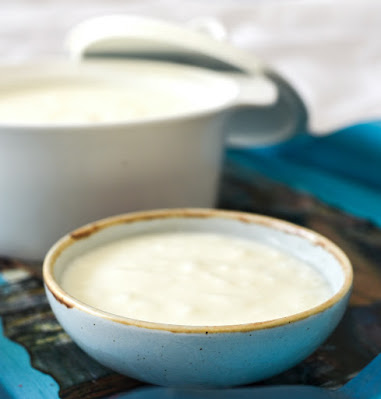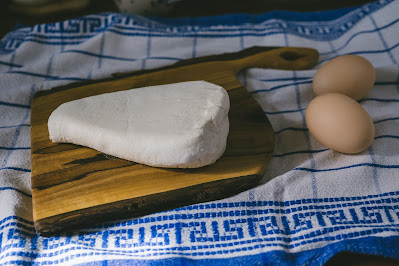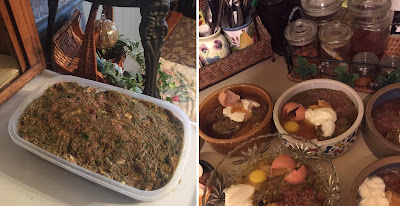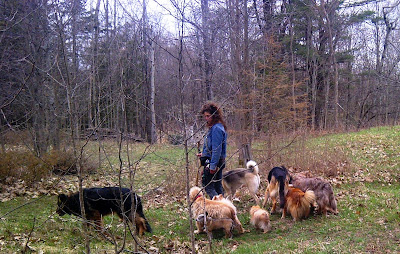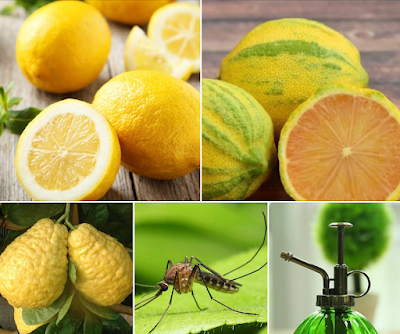How to Select and Include Raw Goat Milk, Kefir, Yogurt , Natural Cheese in Your Puppy, Dog, Cat and Kittens Diet
In
this article:
- Dairy, An Ancient Food for Dogs, Puppies and Cats and Kittens
- Is Dairy Appropriate for your Dog, Puppy, Cat and Kitten
- Lactose Intolerance
- Hypersensitivities
- Good Saturated Fat Supports Health
- Not for Dogs and Cats with an Active Yeast Infection
- Raw Goat Milk, Kefir and Yogurt
- Health Benefits
- How to Choose a Good Product
- Recommended Serving Guideline
- Cheese
- Health Benefits
- How to Choose a Good Product
- Recommended Serving Guideline
- Recipes
- Pancakes and Waffles for Dogs
- Smoothies for Dogs
- Cheese and Meat Treats
1.0 Diary, An Ancient Food for Dogs, Puppies, Cats and Kittens
For many centuries dogs, puppies, cats and kittens have had dairy in their daily diet. Traditional examples, include goat milk and kefir.
2000 years ago, the shepherds of the Caucasian
Mountains
developed kefir, a fermented
dairy product made from the milk of cows or goats.
The shepherds gave fresh kefir to their dogs, as part of the daily diet.
Prior to the 1950's mass popularization of dry food (kibble), people fed their dogs and cats, fresh whole food, including dairy products. At that
time dogs lived twice the life-span that they do today.
My dogs enjoy pastured grass fed-sourced kefir and raw unpasteurized goat milk as part of their daily diet. My cats don't like goat milk, but they do enjoy kefir and cheese.
2.0 Is Dairy Appropriate for Your Dog, Puppy Cat and Kitten
2.1 Lactose Intolerance
Some dogs and cats are lactose intolerant. However your dog and cat may not have an intolerance to all dairy products.
Kefir products are 97% to 99% lactose free. Most lactose intolerant dogs, puppies, cats and kittens can tolerate kefir.
Most lactose intolerant dogs and cats can tolerate hard cheeses that contain trace amounts of lactose. For example:
- American cheese
- Cheddar cheese
- Edam
- Gouda
- Parmesan
- Swiss Cheese
2.2 Hypersensitivity
Some dogs, puppies, cats and kittens are hypersensitive (intolerant or allergic) to:
- Specific animal proteins e.g. buffalo, cow, goat, etc.
- Part of an animal, i.e. a dog may tolerate organs but not muscle meat from a specific animal.
- Pasteurized milk, but do fine with unpasteurized milk.
To learn more about food allergies in dogs and cats, go to this article.
Choose the dairy products that best suit your individual dog and cat's personal situation.
2.3 Health Supporting Omega Fatty Acids
Does your dog need to lose or gain weight? Dairy Can Help
Probiotic dairy products (raw goat milk, kefir, yogurt) help re-populate your animal's gut with good bacteria.
Studies have confirmed that good saturated fat is not
associated with obesity or heart disease.
Good saturated fat can improve metabolic health, heart health and is essential for supporting overall health.
A species
appropriate diet for dogs should include approximately 30% high quality appropriate fats.
Dairy products such as goat milk, kefir, yogurt, butter, ghee and cheese sourced from free-range pastured animals is a source of high quality fats (omega fatty acids).
Dairy products sourced from concentrated animal feeding operations (CAFO)
raised
animals are not a good source of fats. CAFO sourced dairy can adversely impact short and long-term health.
CAFO sourced dairy products are:
- Contaminated with glyphosate (a gut disrupter and carcinogen).
- Contain too much omega-6 and insufficient levels of Omega-3 fatty acids. Too much Omega-6 intake can contribute to inflammatory health issues and conditions.
- More likely to trigger intolerance or allergy response as CAFO raised animals are fed a diet of corn and soy. Corn and soy are common allergens for dogs and cats.
2.4 Not For Dogs, Puppies, Cats or Kittens Experiencing an Active Yeast Infection
If your dog, puppy, cat or kitten is experiencing an active yeast infection, don't give your animal dairy products. Dairy products will feed the yeast overgrowth.
Wait until the yeast infection is 100% in remission, then try introducing the dairy product.
3.0 Raw Goat Milk, Kefir, Yogurt
3.1 Health Benefits of Goat Milk, Kefir and Yogurt
Probiotics
Raw unpasteurized goat milk, kefir and yogurt are a good source of probiotics. Probiotics help support:
- Cancer prevention.
- Oral health.
- Wound healing.
- and...
Mitigate Conventional Antibiotic Damage
Conventional antibiotics kill the good and bad microbes (bacteria) in the
gastrointestinal tract (GI Tract). Good microbes are an essential part of your dog and cat's immune system.
Damage to the gut leaves your dog and cat very vulnerable to bacterial and yeast infections, viral infections and other health issues.
Support Brain Function
Researchers at UCLA confirmed that the
presence of good bacteria in the GI Tract are important for proper brain
function. UCLA decided to test this theory on humans as previous research on non-human
animals had shown linked changes in gut flora to changes in effective
behaviours. You can read about the study here.
Support Heart Health
The omega fatty-acids and probiotics in raw goat milk, kefir and yogurt help support heart health.
Nutritional Support
One tablespoon of kefir contains:
- 5 billion beneficial bacteria.
- B Complex vitamins, Calcium, vitamin A, Vitamin D, magnesium, phosphorus.
- Essential amino acids.
- Tryptophan.
3.2 How
to Choose a Good Product for Your Dog and Cat
- Should be sourced from pastured, grass fed goats.
- Should be pure, no additives.
- Unpasteurized, raw goat milk provides the best probiotic and nutritive value.
3.2.2 Kefir and Yogurt
The product should be:
- Grass fed pasture sourced, and/or;
- Organic.
The product should contain only the following ingredients:
Bacterial cultures, e.g.,
Serve 1x to 2x per day
- Bifdobacterium lactis;
- Lactobacillus acidophilus
- Lactobaciullis casei
- Milk or partially skimmed milk
- Milk protein concentrate
What you don’t want in your dog or cat's dairy products:
- Agar-Agar
- Artificial food colors
- Artificial sweeteners
- Carageenan
- Corn Starch
- Lecithin
- Flavoring (artificial, 'natural' or organic flavoring)
- Gallan Gum
- Gelatine
- Salt (common salt, iodized salt, table salt)
- Sugar and other sweeteners
- Tapioca
- Modified Corn Starch
- Modified Rice Starch
- Potassium Sorbate
- Etc.
3.2.3 Serving Recommendation Guidelines
Serve 1x to 2x per day
Cats and kittens - 1 tsp to 1 tbs
Puppies - 1 tsp to 1/4 cup
X-Small
size dogs - 1 tsp to 1 tbs
Small dogs - 1 tbs to 2 tbs
Medium size dogs -1/4 cup
Large dogs - 1/3 cup to 3/8 cup
Extra large dogs - 1/2 cup
Small dogs - 1 tbs to 2 tbs
Medium size dogs -1/4 cup
Large dogs - 1/3 cup to 3/8 cup
Extra large dogs - 1/2 cup
Yogurt
Serve 1x to 2x per day
X-Small size dogs, cats and kittens - 1 tsp to 1 tbs
Puppies - 1 tsp to 1/4 cup
Serve 1x to 2x per day
X-Small size dogs, cats and kittens - 1 tsp to 1 tbs
Puppies - 1 tsp to 1/4 cup
Small dogs - 1 tbs to 2 tbs
Medium size dogs - 1/8 cup
Large dogs - 1/3 cup
Extra large dogs - 1/2 cup
4.0 Cheese for Dogs and Cats
4.2 Health Benefits of Cheese
4.3 How to Choose a Good Cheese For Your Dog or Cat
4.4 Recommended Serving Guideline
Medium size dogs - 1/8 cup
Large dogs - 1/3 cup
Extra large dogs - 1/2 cup
As with any new
food introduced to your dog, puppy, cat or kitten's diet, go slow. The
probiotics in kefir are highly concentrated so give your dog or cat's system time to
adjust. For the first few days to a week cut the recommended dosage in half.
This will avoid stomach upset as your dog or cat's system adjusts to the increased
quantity of good flora in their GI tract. You can bring the daily dosage up to
the recommended amount over the space of a few days to a week or two.
4.0 Cheese for Dogs and Cats
4.1 Natural Cheese
- Milk
- Full spectrum salt - i.e. sea salt, Himalayan salt.
- NOT common table salt or iodized salt.
- Learn more about good vs. bad salt here.
- Salt is used as a ripening and preservation aid, also for taste
- Rennet (an enzyme)
- A starter culture (the making of yogurt and kefir also require a starter culture)
Processed cheese food (cheese
slices, cheese spray, squeeze cheese from a tube/bottle):
- Is NOT good for your
dog or cat.
4.2 Health Benefits of Cheese
Built-in Synergy
- Cheese contains Calcium, Vitamin D3 and Vitamin K2 – in order for these vitamins to provide the maximum benefit to the body all three need to be consumed together for efficacy.
pH Balance for Oral Health
- Eating cheese in an aid in fighting periodontal disease;
- Eating cheese drops the pH level in the mouth
- Lower pH levels help fight plaque, protects tooth enamel and erosion of teeth
- Cheddar cheese contains the highest levels of alkali making it the best cheese for attaining better pH levels in the oral cavity
- Cheese is a very good source of vitamin K2
- Vitamin K2 is important for heart, brain, bones and more
- Calcium is beneficial for bones and blood but it is not beneficial when deposited in the arteries and muscles – vitamin K2 controls where calcium goes or does not go in the body
- Fights cancer
- Protects nerve cells from oxidative stress
- Slows progression of conditions such as Cognitive Dysfunction Syndrome – CDS (also known as Senile or Old Dog Syndrome – the canine version of Alzheimer’s disease)
- Promotes the maintenance of healthy bone density
- To ensure the best bioavailability (absorption rate) K2 is best combined with fat – a combination that naturally occurs in cheese
Calcium
- Cheese is an excellent source of calcium
- The calcium in cheese helps to support oral health in dogs, along with bone and blood health
Protein
- Cheese is a good source of high quality protein and important amino acids
- Cheese is a source of good fats
- Dogs need high quality saturated fats (Omega-6 fatty acids) and Omega-3 fatty acids
- Required to support skin, coat, ligaments, heart, optimal brain function, and more, you can read more about good fats here and about the negative impacts of insufficient levels of omega-3 fatty acids here
Essential Minerals
- Such as phosphorus and zinc
Essential vitamins (in addition to
calcium)
- Such as A, B2 (riboflavin), B12, and D
Conjugated linoleic acid (CLA)
- CLA is a metabolism booster – helps to prevent weight gain and treat obesity
- A powerful cancer inhibitor/fighter
- Helps to limit allergic reactions to foods
- Promotes health of the circulatory system
4.3 How to Choose a Good Cheese For Your Dog or Cat
The
following cheeses are good choices:
- Harder Cheese:
- Cheddar cheese
- Colby cheese
- Edam cheese
- Gouda cheese
- Hard goat cheese
- Mozzarella cheese
- Swiss cheese
Cheese
made from the milk of pastured grass-fed cows (goats, etc.) vs. grain-feed animals:
- Has about five (5) times the CLA found in cheese made from grain-fed animals;
- Contains much higher amounts of calcium, beta-carotene, magnesium, and vitamins A, C, D and E.
Raw
cheese made from the milk of pasture-fed animals:
- Retains natural enzymes that increase the nutritional value of the cheese.
4.4 Recommended Serving Guideline
Small
size dogs and cats - 1 ounce
Medium size dogs - 1 1/2 ounce
Large dogs -2 ounces
Extra large dogs - 2 1/2 ounces
Medium size dogs - 1 1/2 ounce
Large dogs -2 ounces
Extra large dogs - 2 1/2 ounces
Maximum amount of cheese daily basis:
2 x the minimum amount noted above.
5.0 Treat Recipes With Dairy
5.1 Pancake and Waffle Recipes for Puppies and Dogs
For the recipes, go here.
5.3 Cheese Treat Recipes for Puppies and Dogs
For the recipes, go here.
Holistic Diet, Nutrition, Wellness Services Tailored to Your Individual Dog and Cat
For information about my holistic diet, nutrition and wellness services, visit my holistic wellness services page.
Maintain good health | Address acute and chronic health issues | Pre and post surgery support and recovery
My holistic wellness services are available worldwide via video consultation.
🌎 USA | Canada | UK | Europe | Australia | New Zealand | Asia | South and Central America | Africa | UAE
📱FaceTime | Facebook | Skype | WhatsApp
To set-up your holistic wellness consultation get in-touch via email, go to my contact me page.
Holistic Behavioral Services for Your Dog
For information about my holistic behavioral services, visit my holistic behavioral services page.
For dogs of all ages, sizes and breeds.
My behavioral services are available worldwide via video consultation.
🌎 USA | Canada | UK | Europe | Australia | New Zealand | Asia | South and Central America | Africa | UAE
📱FaceTime | Facebook | Skype | WhatsApp
To set-up your holistic behavioral session get in-touch via email, go to my contact me page.
Affiliations to Companies
✓ None.
✓ I don't sell food, supplements, or other products.
✓ I'm not aligned with any companies.
Article by Karen Rosenfeld.
